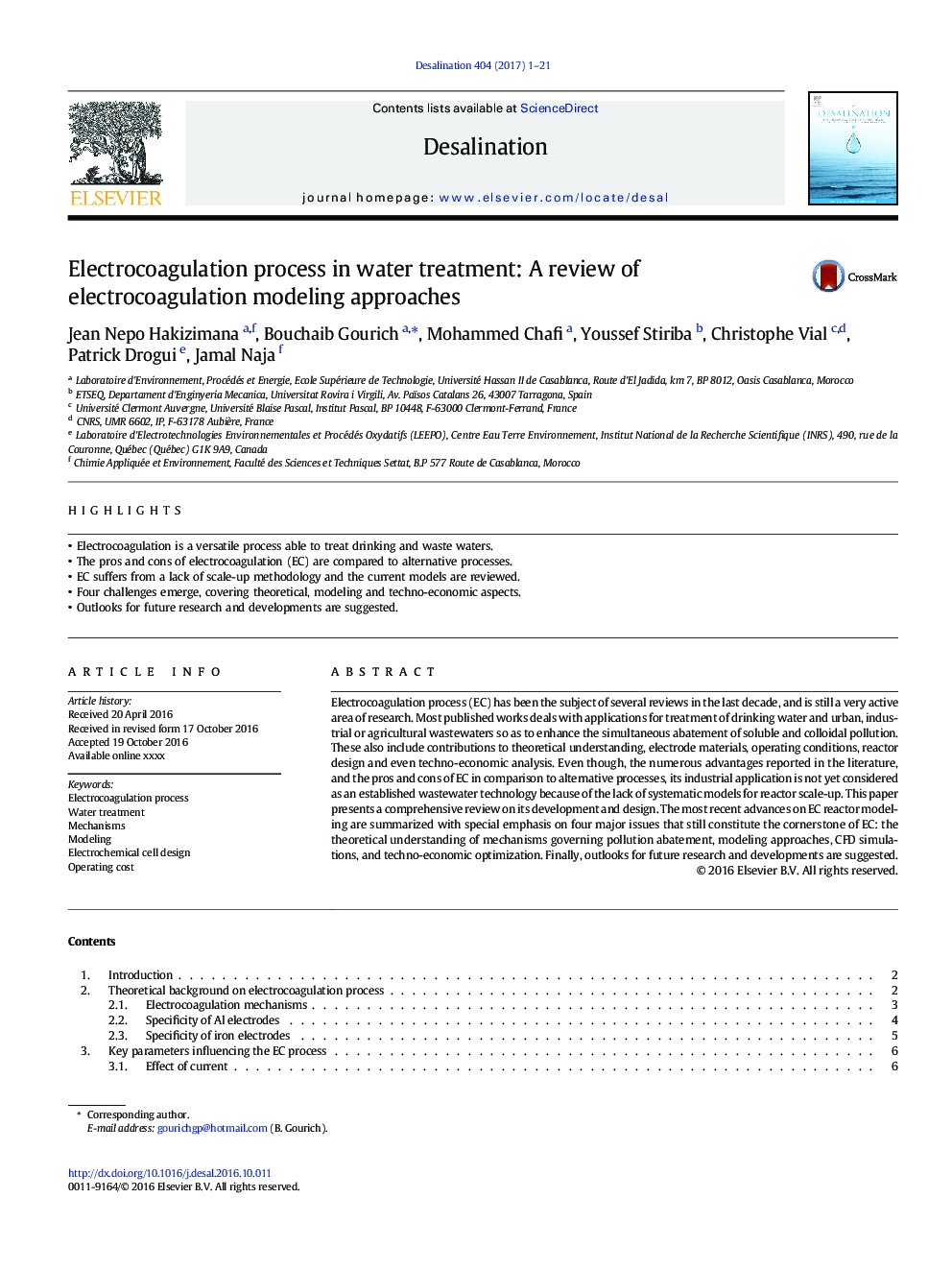| Article ID | Journal | Published Year | Pages | File Type |
|---|---|---|---|---|
| 4987826 | Desalination | 2017 | 21 Pages |
Abstract
Electrocoagulation process (EC) has been the subject of several reviews in the last decade, and is still a very active area of research. Most published works deals with applications for treatment of drinking water and urban, industrial or agricultural wastewaters so as to enhance the simultaneous abatement of soluble and colloidal pollution. These also include contributions to theoretical understanding, electrode materials, operating conditions, reactor design and even techno-economic analysis. Even though, the numerous advantages reported in the literature, and the pros and cons of EC in comparison to alternative processes, its industrial application is not yet considered as an established wastewater technology because of the lack of systematic models for reactor scale-up. This paper presents a comprehensive review on its development and design. The most recent advances on EC reactor modeling are summarized with special emphasis on four major issues that still constitute the cornerstone of EC: the theoretical understanding of mechanisms governing pollution abatement, modeling approaches, CFD simulations, and techno-economic optimization. Finally, outlooks for future research and developments are suggested.
Related Topics
Physical Sciences and Engineering
Chemical Engineering
Filtration and Separation
Authors
Jean Nepo Hakizimana, Bouchaib Gourich, Mohammed Chafi, Youssef Stiriba, Christophe Vial, Patrick Drogui, Jamal Naja,
